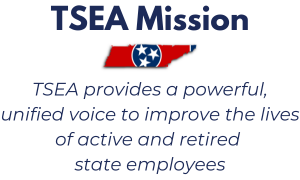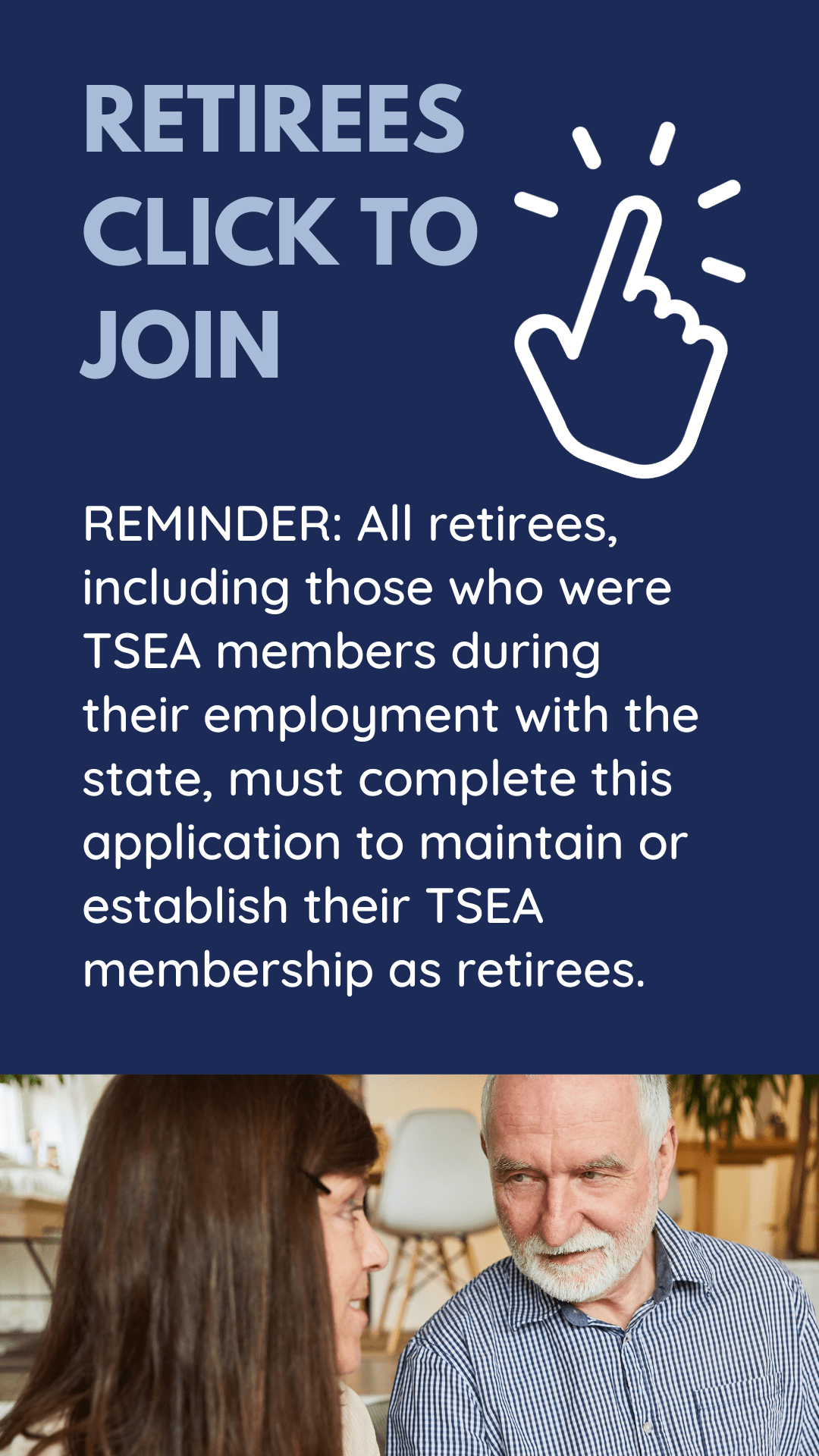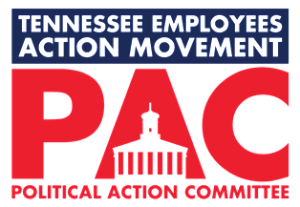State employees and their dependents have now had a little over two years under the ParTNership PPO as their health insurance plan. During this time, TSEA members have voiced concerns from their experiences attempting to meet the requirements as determined by Benefits Administration. Employees not only have seen the increased cost in premiums, but they are experiencing more out of pocket expenses than ever before. Office visit co-pays, emergency care co-pay, pharmacy needs, deductibles, and out of pocket maximums have all increased in the past two years, while seeing only a modest increase in their salaries.
As part of the 2013 ParTNership Promise, employees were required to complete an online Well Being Assessment (WBA). Results from the WBA would help identify employees who were determined to be ‘at risk’. In turn, the employees identified were assigned a health coach to help manage their chronic illness or undergo lifestyle management through Healthways, the company contracted to provide wellness services to enroll state employees. Many employees have contacted TSEA with concerns about the process for identifying those at risk, difficulties with the health coaches, as well as the suggested alternatives.
After discussing concerns over the coaching practices and whether the contract is actually saving the program money, TSEA Government Affairs Director Sarah Adair, along with legislative staff, and Senator Bill Ketron, determined that the issue should be reviewed by the Joint Fiscal Review Committee, which serves as legislative oversight for state contracts. Through this public hearing on September 17, TSEA brought awareness of the coaching difficulties to our legislators. TSEA Executive Director Bob O’Connell and Sarah Adair provided the committee over one hundreds e-mails from state employees expressing the trouble they have suffered the past year with the Partners for Health program. This gave legislators the opportunity to hear firsthand the frustrations state employees were having while trying to meet the requirements assigned to them by Healthways’ coaches.
Many employees spoke of difficult situations where the health coaches were hard to reach, would not return calls as promised, or did not have the appropriate patient information. Employees whom TSEA heard from overwhelmingly requested the health coaching be administered through their personal physician. It was suggested by many employees that Partners for Health provide discounted (or free) memberships for gyms, as in most cases a gym membership is unaffordable to state employees but would facilitate the healthier lifestyle ParTNers for Health advocates. Legislators also had an opportunity to hear from Laurie Lee, Executive Director for Benefits Administration, and from the committee’s staff attorney who gave her own personal health coach story.
As a result of this meeting, the Committee requested that BA come back for a second hearing in 2014 to report on the contract, specifically, on how better customer service has been achieved, and deliver a report on the effectiveness of this contract, which will then be in its second year. According to Laurie Lee, if the program does not achieve results from the coaching, the contractor will actually be penalized. Next year, they will be able to compare the wellness assessments for improvements.
TSEA will continue to monitor this contract and your experiences with the coaching program. Please update TSEA staff on any issues you have with this program, as well as any positive experiences you may have the next year.














